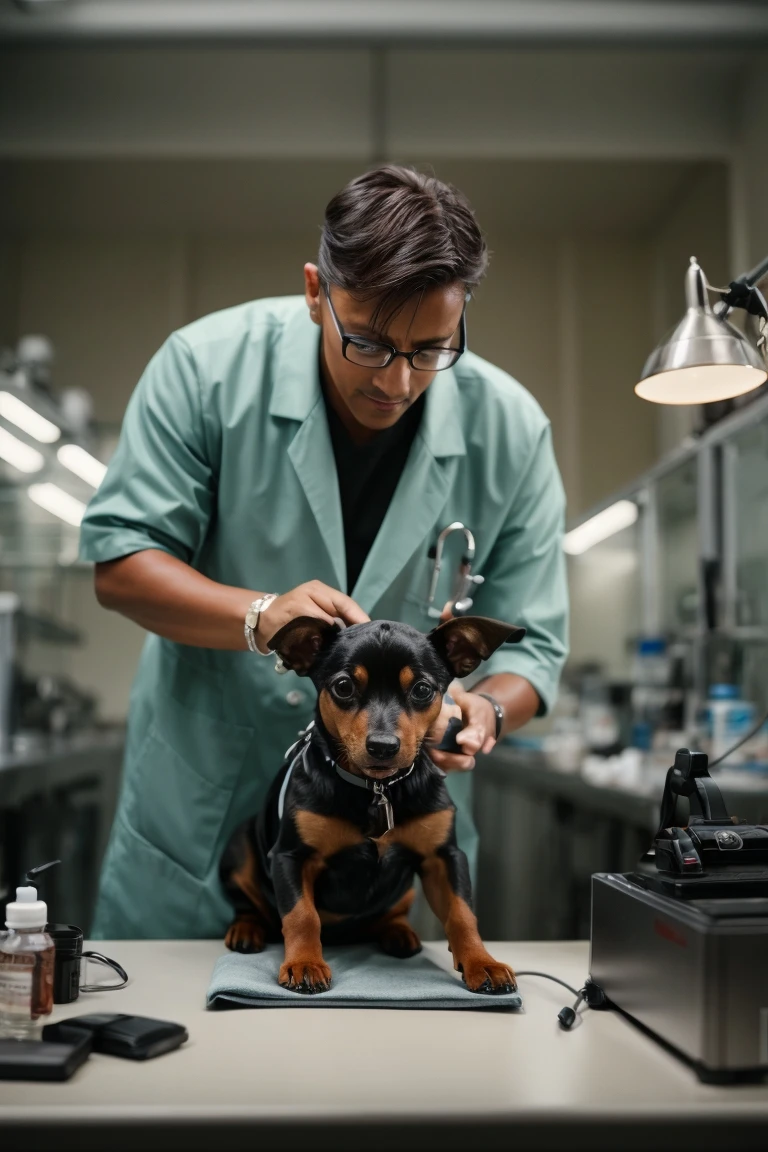Miniature Pinscher Health Issues: What to Know

The Miniature Pinscher is a sturdy, lively small breed. However, like all dogs, Min Pins are prone to certain health conditions. Being aware of the common issues seen in the breed can help you catch problems early and provide the best care. Here’s an overview of the main health concerns to be aware of with Miniature Pinschers.
Patellar Luxation
One of the most prevalent issues in Miniature Pinschers is patellar luxation. This occurs when the kneecap slips out of position, causing lameness in the hind leg. Signs include:
- Sudden limping or holding leg up
- Difficulty jumping up or walking stairs
- Reluctance to run or play
- Pain in hind legs
Mild cases may resolve on their own with rest. More severe cases often require surgical repair. All Min Pin puppies should be screened for patellar luxation.
Legg-Calve-Perthes Disease
Similar to patellar luxation, Legg-Calve-Perthes affects the hip joint rather than the knee. It involves deterioration of the femur bone leading to arthritis. Symptoms typically appear between 6-12 months old and include:
- Hind limb lameness
- Muscle loss in thighs
- Pain in hips or groin area
This condition requires surgical intervention. Only purchase Min Pin puppies that have been screened and certified free of hip dysplasia.
Collapsing Trachea
The cartilage rings of the trachea can weaken and flatten, causing this airway to collapse. Signs of collapsing trachea include:
- Dry, honking cough
- Coughing when excited or pulling against leash
- Difficulty breathing
- Cyanotic (bluish) gums
Mild cases can be managed with medication and use of a harness. Severe cases often warrant surgical placement of a stent to hold the trachea open.
Hypothyroidism
An underactive thyroid gland is relatively common in Miniature Pinschers. Symptoms may include:
- Lethargy
- Weight gain
- Fur loss
- Skin infections
Hypothyroidism is diagnosed with a blood test and easily managed with daily oral medication. Testing thyroid levels should be part of routine wellness screening.
Diabetes
Obesity and genetics predispose Min Pins to developing diabetes, typically later in life past 7 years old. Warning signs include:
- Excessive thirst and urination
- Increased appetite
- Weight loss
- Lethargy
Diagnosis is made with bloodwork and urine tests. Diet, oral medication, and insulin injections are needed to regulate blood sugar levels once diabetes develops.
How to Minimize Health Problems
The best ways to reduce risks are:
- Select a reputable breeder who screens all breeding dogs for breed-specific conditions.
- Feed a high-quality diet and avoid obesity.
- Have annual vet exams to catch issues early, plus regular bloodwork, urinalysis, and dental cleanings.
- Consider pet insurance to offset costs should major issues arise.
While generally healthy dogs, Miniature Pinschers are at higher risk for certain orthopedic, respiratory, endocrine, and other problems. Stay vigilant of the common breed-specific conditions to provide your Min Pin the best care.